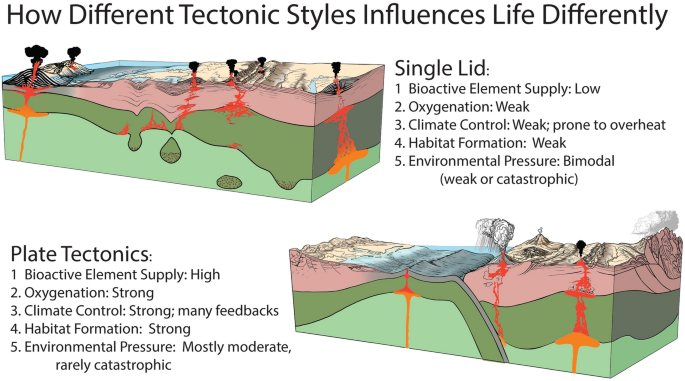Science
Related: About this forumScientists Revise Famous Drake Equation
This contradiction is known as the Fermi paradox, named for the Italian and later naturalized American nuclear physicist and Nobelist Dr. Enrico Fermi, who informally posed the question to colleagues.
“Life has been around on Earth for about 4 billion years, but complex organisms like animals didn’t appear until about 600 million years ago, which is not long after the modern episode of plate tectonics began,” Professor Stern said.
“Plate tectonics really jump-starts the evolution machine, and we think we understand why.”
https://www.sci.news/astrobiology-2/revised-drake-equation-13067.html
Bernardo de La Paz
(51,327 posts)cachukis
(2,749 posts)Irish_Dem
(59,772 posts)And humans are hell bent on blowing themselves up.
They don't understand the existence of humans is rare and very special.
BootinUp
(49,169 posts)the article. But I am on your side.
Irish_Dem
(59,772 posts)The problem is that we are understandably earth/human centric.
There could be intelligent life forms which are not humanoid at all.
And are not living on earth like planets.
JoseBalow
(5,667 posts)How so?
BootinUp
(49,169 posts)The researchers propose a revision to the Drake equation that defines fi as the product of two terms:
foc: the fraction of habitable exoplanets with significant continents and oceans;
and fpt: the fraction of planets that have had long-lasting plate tectonics.
Based on the team’s analysis, the fraction of the exoplanets with optimal water volume is likely very small.
The authors estimate the value of foc ranges between 0.0002 and 0.01.
Similarly, they conclude that plate tectonics lasting more than 500 million years is also highly unusual, leading to an estimate of fpt at less than 0.17.
“When we multiply these factors together, we get a refined estimate of fi that is very small, between 0.003% and 0.2%, instead of 100%,” Professor Stern said.
“This explains the extreme rareness of favorable planetary conditions for the development of intelligent life in our Galaxy and resolves the Fermi paradox.”
JoseBalow
(5,667 posts)And I understand how that additional factor would change the formula and it's predictions...
What I don't understand is how plate tectonics affects evolution. Why does plate tectonics matter?
As a related aside, I also don't understand how we can determine/estimate the presence of plate tectonics on distant planets... would it be based on moons/tidal forces, or something like that?
BootinUp
(49,169 posts)I have not read it at this point. They started from the fact that the Drake Equation is not working out based on lack of evidence for intelligent life.
I will try to catch up later.
JoseBalow
(5,667 posts)It's not my background, but I took a look at that paper, and I'm still not sure how they reached their conclusions. They start with a premise that is cited with a footnote that doesn't have a link(2), but then it seems it's mostly speculations after that - a lot of "correlation, not causation" examples and extrapolations.
They seem to conclude that:

Are those things only possible with plate tectonics?
I would definitely appreciate the opinion of someone smarter than I to help explain it.
PoindexterOglethorpe
(26,849 posts)when discussing the Fermi Paradox, is just how very old the Universe actually is, and just how incredibly long a billion years is, let alone 14 billion years.
Thousands of civilizations could arise, thrive, last for thousands of years. Eventually any given civilization dies. In a million years, a thousand civilizations could arise somewhere in the galaxy, and not a single one of them overlap another. So I'm not remotely surprised we haven't found actual evidence of some other technological civilization out there.
BootinUp
(49,169 posts)it is supposed to factor in every planet where life could ever have evolved. There seems to be no evidence in our region of the galaxy for any *previous* or current intelligent life.
Some smart people have spent / wasted, their time on this.